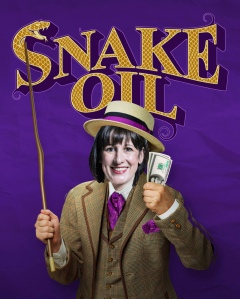(This item first appeared in the Brighton Argus on 25th October 2023)

The King accepts the resignation of Liz Truss and asks Rishi Sunak to form a government
Today is the anniversary of Rishi Sunak becoming Prime Minister. Earlier in the day, the outgoing PM, Liz Truss, had been to the Palace to see the new King, just 49 days after she had flown to Balmoral where the late Queen had invited her to form a new government. Following years of tradition, the King asked Sunak, who had been elected the leader of the Conservative Party the previous day, to take over.
The Conservatives are well-versed in forming governments. After all, they have had five prime ministers in just seven years. Sunak has lasted longer than Truss, but how much longer will he survive? There are already rumours that members of the Conservative Party are submitting letters to the Chair of their backbench committee calling for a vote of no confidence in him.
It would be understandable if a combination of their lead in the polls, and last Thursday’s two by-election results in Mid Bedfordshire and Tamworth led Labour activists, MPs and the party’s leadership to believe that a Labour victory in the general election is now nailed on. They are probably right. However, the Labour leadership has had political-Botox that makes outward-showing signs of confidence impossible.
The Conservatives have dismissed the by-election results, saying that it is almost inevitable that sitting governments lose by-elections, and that there is still a year until the general election. Anything can happen between now and then.
But make no mistake, these by-election results were sensational even though Tamworth was a Labour seat until going Conservative in 2010. Mid Bedfordshire was the more remarkable result, overturning a Conservative majority of almost 25,000.
It is unlikely that Labour will hold Mid Bedfordshire come the general election. Worryingly for Labour, there was no groundswell of support for the Labour candidate. In fact, the Labour vote went down by 156 from the 2019 election. The Conservatives point to the low turnout, saying that it was their voters who just didn’t turn out and that there was no enthusiasm for Labour and its lacklustre leader, Sir Keir Starmer. A modest increase in turnout by Conservative voters next year will see it returning to its traditional blue.
Meanwhile, election-guru, Professor Sir John Curtis, points out that a failure to get your vote out is indicative of your party’s malaise. And that is certainly true for the Conservatives. Which Tory party activist in their right mind can feel any enthusiasm for the bumblings and fumblings of the current government. Like a wonky shopping trolley, they lurch from one crisis to another.
Some in the current government make former minister Chris Grayling look vaguely competent. It was Grayling who destroyed the probation service, created chaos in the prison system, and awarded ferry contracts to a company with no ferries, a company that operates out of a harbour that cannot accommodate … ferries. Anyone would have thought Grayling was once in charge of the high-speed train initiative, HS2, that has gone over-budget by billions of Pounds and which the government is now curtailing. Wait a minute, Failing Grayling was once in charge of that, too.
The Covid enquiry is showing that we had a prime minister (Boris Johnson) who was initially disengaged. As Churchill said of the Americans, Johnson could always be relied on to do the right thing … once he had exhausted all other possibilities. He locked down too late, and unlocked too soon. He ridiculed Starmer saying that the Leader of the Opposition had wanted to cancel Christmas while he, as Prime Minister, wanted restrictions to be lifted. Yet only a few days later he had to do just what Starmer had called for. All this time he was loyally supported by his poodle Chancellor, Rishi Sunak.
And in the last week or so we learned through the enquiry that Sunak, as Chancellor, launched the ‘Eat Out to Help Out’ initiative in spite of misgivings by the government’s leading scientific advisers including Professor Dame Angela McLean who dubbed him ‘Dr Death the Chancellor’.
For just a bit of fun, Election Maps U.K. applied the Tamworth result across the country. If the swing and result there were to be applied to every constituency, Labour would have a majority of 424 seats with 537 MPs, the Lib Dem’s 46, the Conservatives 29 and others 19. On this basis the Conservatives would win no seats whatsoever in Sussex. That won’t happen, of course, but Sunak will have to pull one giant rabbit out of his magicians hat to avoid a humiliating defeat next year.
 At Easter there were a number of stories about the ever-reducing size of chocolate eggs being sold for the same price as their previously larger versions. Apparently most chocolate bars are getting smaller, as are the size of other everyday items we might buy. The price might not be going up but you are getting less for your money. This is known as ‘shrinkflation’.
At Easter there were a number of stories about the ever-reducing size of chocolate eggs being sold for the same price as their previously larger versions. Apparently most chocolate bars are getting smaller, as are the size of other everyday items we might buy. The price might not be going up but you are getting less for your money. This is known as ‘shrinkflation’.










